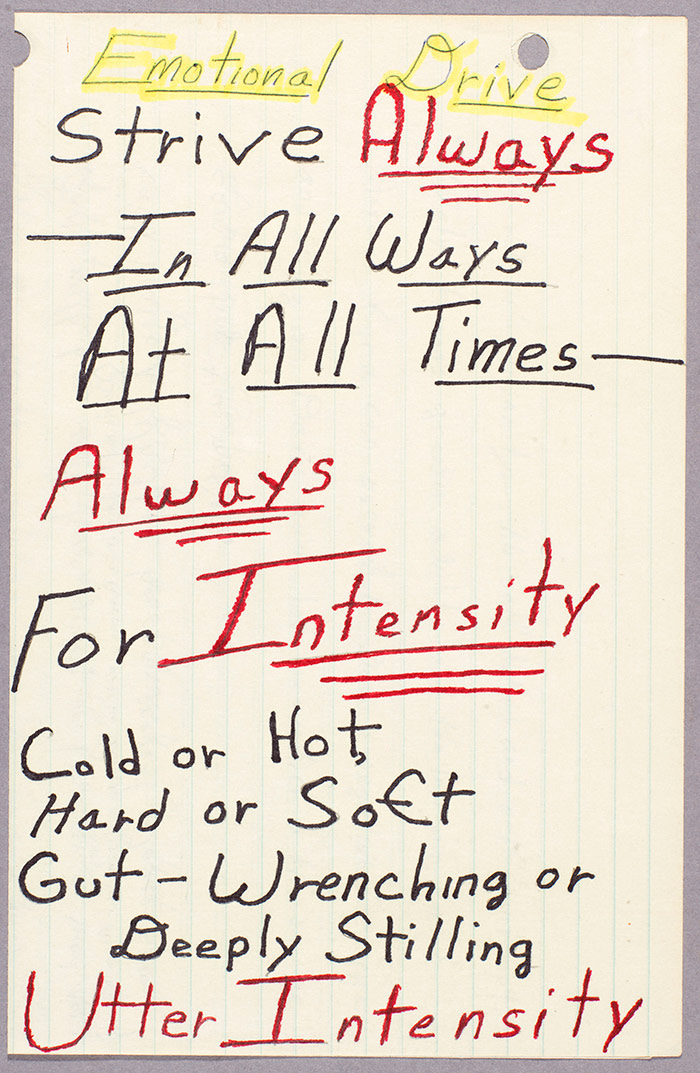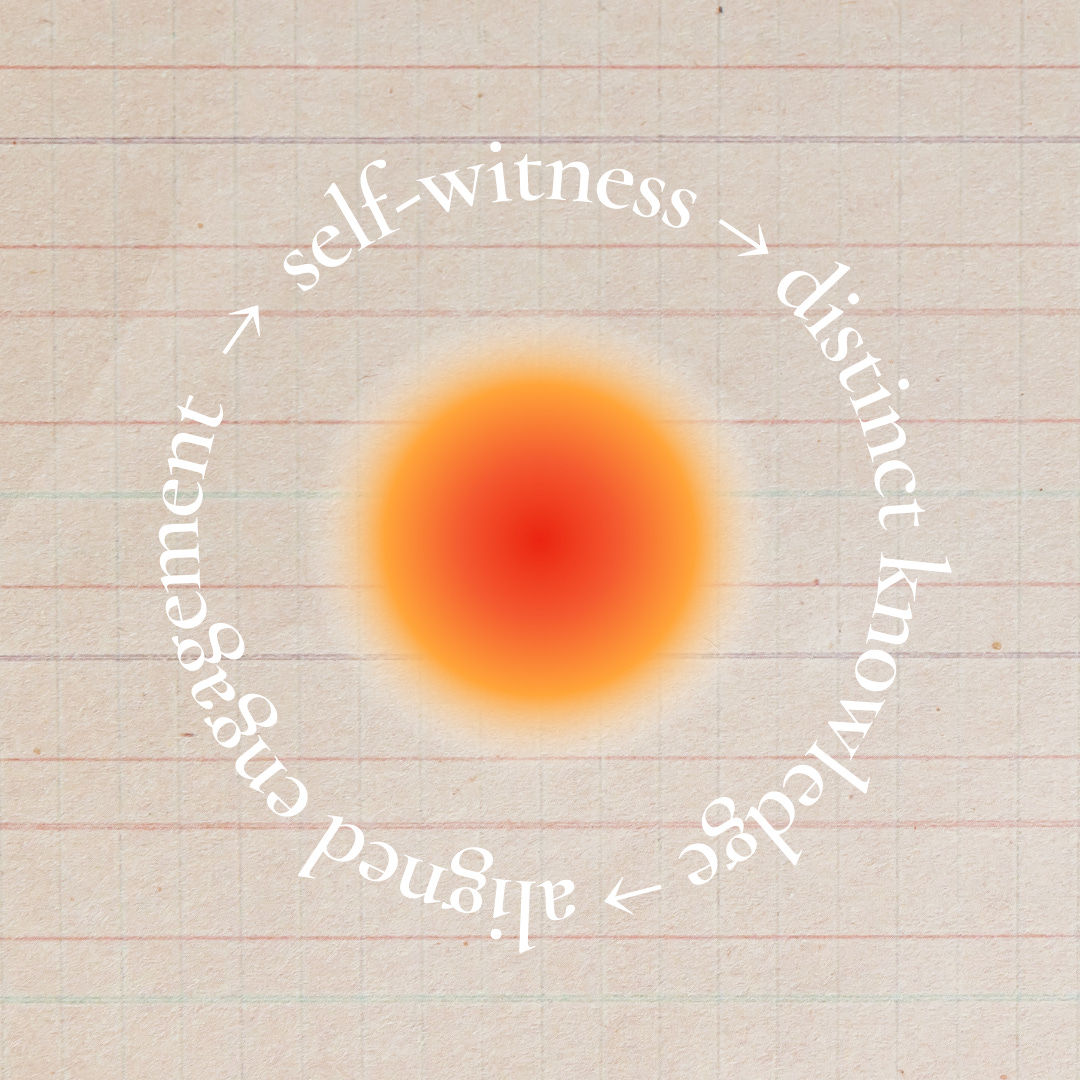'What kind of magpie keeps this notebook?'
bless this mess
Welcome to Gentle Musings, a publication about reconnecting with yourself, experiencing life as a creative practice, and living out loud. Gentle Musings is a reader-supported publication. To receive new posts and support this work, consider becoming a free or paid subscriber.
I’ve been wanting to share my writing and creation systems in a video for three years now.
Here was the idea: a long and very well edited video in which I’m articulate and not at all nervous. In it, I imagined sharing my perfectly designed, always efficient, definitely aesthetic project and idea organization system.
This was all part of a fantasy I carried around for so long that my creative process would be streamlined. Honestly? A part of myself wanted my systems and creative process to be immaculate. A part of myself felt haunted by this inadequacy.
My process is messy and unpredictable. Disliking this messiness has been a source of much inner drama. Embracing and creating structure to steward this messiness has been a source of consistent, fulfilling output.
Right now, I’m writing to you from my very messy studio. How did that happen? It was clean yesterday, but today: piles and stacks. I used to think that when my process or space got messy, it meant I wasn’t disciplined enough. It was a sign of unseriousness or irresponsibility.
The amateur was messy and the professional knew the art of order.
Where did I get that idea??!
(the internet)
Don’t get me wrong: sometimes it’s hard to think when there’s clutter, whether mental or physical. Friends who read can attest: my home is calm and kempt. My office/studio cycles through mess and simplicity every week (cleaning it up is part of my creative process, a time that I can reflect and daydream).
When it comes to how I organize my projects and ideas, the same is true: my journals and documents go from order to chaos to order to chaos and back again.
Without the chaos, the mess, the swirl of thoughts and choices, I’d get bored. It’s happened before: planning a project straight into the ground out of trying to manage and organize the process when it didn’t need it.
I’ve found that more than precision, more than competence, and even more than time, creative ideas and new life directions ask for trust.
Sometimes, although rarely, the painting/book/song/invention drops into someone’s mind in its final form and asks to be dictated into form (when this does happen, I’ve noticed that it mostly occurs after years of nurturing a practice). Sometimes, we move to the new city or quit the job without a drop of doubt.
Almost always though, we get the pull. The glimmer, the hit, the inkling to follow something that feels alive to us. And we begin without knowing what direction it’ll take us.
Little interruption to circle back to that pestering video: I still want to make it! And I promise I’m not going to wait until my systems are just so (they never are, and that’s a good thing). In everything I share online, I’m all in on giving great care to what I make—I honor your time—without contributing to any false image of perfection (far from it, and I know that’s a good thing). There’s a lot more I could say on this, but for now:
If there’s anything that you’re curious about or would like to see when it comes to organizing projects, ideas, days, etc. please let me know by commenting below. Seriously, let me know <3
Today I want to share with you one of my holy grail practices that I’ve been building on and refining for years. It’s a simple idea and a reliable system.
Most importantly, it accounts for mess as a real and important variable in the creative process.
If you love to journal or if you love to take notes on notes on notes—and it sometimes gets a bit overwhelming—I trust that this will be useful for you.
If you have a tendency to *totally forget* about your carefully planned intentions, habits, goals, project plans, and systems that you came up with just last week because they're on a scrap note, a misplaced post-it, a random email to yourself, or buried in a journal (the stacks and piles!), you're not alone! I have a feeling that what I share today will be especially helpful.
If you don't have a writing practice at the moment, but one is calling to you—especially with the turn to fall in the northern hemisphere—this letter is one to spend a little time with.
What I'm sharing about today is a practice that I call ~~harvesting~~
I created harvesting in the midst of feeling frustrated from a perpetual cycle of planning to start something (whether a creative project or something habit-based like Sunday food prep) and then... I'd lose it.
Even if a part of me knew where it was, like if it were in my current journal for example, I'd forget with each new day that I wanted to practice or start or finish the thing that I said I would finish! The momentum of each new day definitely didn’t help.
This has happened to me over and over again. And it still happens, but it happens way less now that I have systems and practices that work for me, instead of being resentful of my patterns and designing something ‘ideal’.
Last year, I made the Harvesting Guide that walks you through the process of harvesting step by step. It's open-ended and highly adaptable on purpose: this practice bends with your life and your needs as they emerge in process.
Harvesting is one of those practices that impacts everything. Kind of like meditation, it doesn't leave anything untouched and it takes less time than we might tell ourselves.
Also, just like meditation: when I tell myself it has to happen at a certain time everyday, or fives times a week, and I have to do it for this long…. I tend to resent the rigidity and sense of obligation. And then I start to feel very rebellious.
When I tell myself that meditation is something I do that is allowed to ebb and flow, that it’s allowed to happen as I was dishes or walk to the library, not just at 7am on the mat, and when I remind myself that it’s something that makes me feel comfort and a steady sense of inspiration, I catch myself living into a meditative state with ease.
Harvesting is like that: you can make a weekly or monthly structure to make it happen (super valuable when it’s approached with care) and it can be something that you can reach for when you feel drawn to practice it.
I’m getting ahead of myself… What is harvesting?
Harvesting is a focused practice of gathering insights and wisdom from your personal archives—journals, documents, notes, and more. It's a deliberate process of revisiting and cultivating meaning from your experiences and recorded reflections.
The process of harvesting is just as important as what you end up finding. In other words, when you sit down to harvest a journal or a messy Google Drive, you’re choosing to tap into your distinct body of knowledge (even if this includes quotes and passages from other people). It’s like your secret library of understandings that only you get to dwell in.
Creativity is the process of turning your understandings into expressions: through voice, image, sound, word, movement, experience... even through thought (creative thinking counts!).
Harvesting is a form of creative reflection and creation. It’s active assemblage and synthesis.
For as many times as I’ve relied on this practice, I can say: it’s hard to harvest without generating new insight and clarity that then gives way to creative expression.
When I think about the impact of harvesting on my own life, the area that has been most improved has been my self-assuredness. As a previously professional self-doubter, this is a big deal.
Through harvesting, I’ve learned how to listen to my life instead of trying to superimpose my control based on conditioned ideas of how life ‘should be’ or how I ‘should be’ in order to finally be x, y, z.
It’s given me a deep sense of okayness with how things are and has kept me alert to what can be. In other words: when I harvest, I feel less of a need to control while also feeling a deeper sense of agency and choice.
All of this has freed me from the myth of needing to “get my life together” as if I would arrive and everything would suddenly stay that way for good.
Harvesting is a practice of harmony in the beautiful mess of it all.
Before I had a harvesting practice, my journals were a verifiable black hole. I'm a messy journaler: having too many designated journals makes things feel precious. My job an artist and writer is to keep the pathway from thought and feeling to page smooth and without unnecessary friction.
That means that everything about everything can exist on the same page: a project to-do, a reminder for a friend's birthday, a quote, a sketch, a sweet moment that I don’t want to forget. In the words of Joan Didion in On Keeping a Notebook: What kind of magpie keeps this notebook?
(This kind!)
Without harvesting, everything gets lost at sea in the pages. Sometimes, I didn’t even want to look because it was so overwhelming.
Maybe you can relate to this if you have ever gone through, you know, five journals in a flurry trying to find that one sentence or that one idea that you had?
Harvesting offers a way for you to build on your thoughts and easily look back at your process and even locate yourself within your process (your creative processes, thinking processes, a phase in a project, a phase in your identity, and the life process of becoming more yourself).
If you're also someone who journals, then you know that writing down your insights is a form of integration: you have an experience and then you integrate it through recording it in your own voice.
But this always felt incomplete: I would experience something, write about it, and then watch it disappear into the chaotic journal void.
Harvesting has given me a way to build on my thoughts and easily revisit my process over time. While writing provides an initial pass of integration, harvesting allows for deeper integration through retrospection.
It can guide you to get out of your own way and to see what you normally wouldn't see. It’s a practice, it’s an art, and it’s one of my favorite things to do.
XO
Maggy
I made the Harvesting Guide to breakdown this process so that you can make it your own and feel the impact that it has on you, your creativity, and your life.
If you're someone who also writes a lot, but you're like, how do I turn this into projects?? A harvesting practice is a powerful way of turning your raw insights into tangible pieces.
(It's also a great thing to do when you don't feel like writing—you can just sit down and harvest)
It offers many starting places while having enough structure to get going no matter if you have stacks of journals, a computer that hasn’t been organized since you bought it, or if you only write here and there.
I love this guide and I’m indebted to this practice teaching me to appreciate my messy creative process (and life). Since publishing it, I’ve received so many emails from people sharing with me how their harvesting practice has shifted their thinking and how they show up for their life. If you end up using it, let me know how it goes for you!





